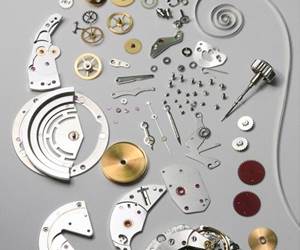Large Threading with Single Spindle
Oilfield pipes require large, quality threads. This Texas shop is getting the performance it needs from two recently implemented big bore lathes.
Delivery of ideas and coverage of products and technology that promote the efficient production of quality, small turned parts is generally the heart and soul of the Production Machining brand. Threading applications for tubing can easily fit into this subject category, but even where not all criteria are met, a suitable story can often be found.
In an industry as large and significant to the U.S. economy as energy, many shops can find applications that relate to their own experiences. So when Houston Threading LLC opens its doors to share its process of applying threads to pipes as long as 46 ft. and 9 5/8 inches in diameter, it is worth checking out. After all, the company faces many of the same challenges as the typical PM reader—delivery of material to the machines, gaging and quality control, budget constraints—even if quite possibly on a grander scale.
Background
Houston Threading is a branch of the larger T.C. Renfrow Company, which offers logistical solutions to the line pipe and oilfield tubulars sector of the steel industry. Other companies in the T.C. Renfrow group offer pipe inspection and storage, rail logistics and trucking services. Houston Threading’s name describes its function in the work process. How the company is able to handle its materials to, from and within the machining process is pretty cool.
The company is fairly new to the industry, opening for business in 2012. With 23 years in the pipe and OCTG (oil country tubular goods) industry, owner Tim Renfrow has held his trucking company and pipe yard on 65 acres of land in Houston for quite a while longer, but saw a niche that he felt he could fill in the threading of pipes.
“One of the things that got me interested in threading was that our customers were needing to move their pipes to two or three locations for various cutting and services,” he says. “I wanted to be able to provide a one-stop location for everything they need.” His customers are mainly third-party pipe distributors who are selling to the big oil companies, and he is now able to act as a middle man in providing all of the necessary services in between. “We can catch a boat at the port, bring the pipe here, inspect it, thread it and ship it out to the end user. By offering all of these services, we save our customers a lot of transportation costs.”
Like pretty much any shop that serves a specific industry, Houston Threading has certain quality standards it must meet. After about a year of qualification testing and documentation, the company was recently API Q1, API 5 CT approved, meaning the American Petroleum Institute endorses the company, allowing it to use the certification stamp on all of its products.
Setting up Shop
To begin its threading operations, the company had to find the right machines for the job. Mr. Renfrow began by calling and visiting other threading facilities to get a better feel for what would be required. Ganesh Machinery was having a fortunately timed open house at its distributor’s location in Houston and invited Mr. Renfrow and his staff to attend and see all of its machines in action.
“Many of our guys in the shop have 30 or more years of experience, and I trust their input on which machines will be the best fit,” Mr. Renfrow says. After seeing the Ganesh machines and being able to compare them to other suitable options, the shopfloor personnel recommended the Ganesh GTW-30 CNC big bore oil country lathe. “I let the employees make the decision, and they felt that these machines could provide the quality and performance we are looking for while saving a substantial amount of money.” Mr. Renfrow also feels that allowing the people who use the machines every day choose what machines to purchase increases job satisfaction and gives them a sense of ownership in the process. “Employee involvement is always a key to happy employees,” he says.
The Ganesh distributor, Texas Machinery Company, has continued to work closely with Houston Threading in training and service, making sure the machines are meeting the company’s needs. “Doug Henke, the sales engineer, calls at least once a week to make sure everything is going well,” Mr. Renfrow says. “He’s done a great job of following up and making sure that the whole experience is good for a long-term relationship.”
The Machines
Houston Threading put into service two Ganesh GTW-30 universal CNC lathes designed for chuck, shaft and bar machining applications. These machines offer a 30-inch swing over the bed, 19-inch swing over the cross slide, and as much as a 10-inch bore. An eight-position hydraulic vertical turret allows any combination of ID and OD tools (four ID holders are supplied). Front and rear A2-11 chuck mounts are standard (while Houston Threading went with the A2-15 chuck mounts with the 10-inch bore), and an automatic metered lubrication system provides oil to the ballscrews and hardened and precision ground double-V/double-flat ways. The electrical control box and coolant system are equipped with electro-magnetic contacts and overload relay protection devices to safeguard motors from burnout and to ensure safe operation. A Meehanite casting, hardened and ground gears, and a standard heavy duty tailstock contribute to rigidity and machining accuracy.
The company went with the FANUC 0i-TD CNC because the employees were most familiar with it (Fagor controls are also available). The FANUC digital control and drive package features a 10.4-inch LCD screen and can catalog 400 part program numbers with an internal 2-GB solid-state data server and 512K RAM. Manual Guide-I conversational programming, with a broad selection of canned cycles, is designed for efficient, intuitive menu-driven shopfloor programming and includes a thread repair cycle.
Making Threads
As one might expect, pipes for the oil industry are fairly large, and therefore, so are the threads. Each unit of casing—the main structural component of a well, helping to maintain borehole stability—is usually between 38 and 46 feet long. Tubing—the pipe that the oil runs through to the surface—is between 28 and 33 feet in length. Diameters are from 2 3/8 inches to 9 5/8 inches. Piping on the smaller end of that scale generally needs to be heat treated, and because Houston Threading does not have that capability, the company focuses mainly on 4 1/2 inches and larger. It can produce about 200 joints in a shift on the 4 1/2-inch pipe. Bigger sizes take longer to thread, so a shift may handle between 100 and 120 joints of the 9 5/8-inch diameter.
Based on the requirements of a purchase order, pipes are moved through in assembly line style. A forklift moves the pipes from the yard to the shop floor. The pipes are then rolled onto a rack system that is built out of beams and rollers and uses hydraulics to assist in moving the pipes to the machines.
The company does both single-point and multi-point turned threading. According to Mr. Henke, from Texas Machinery, the three main styles of single- and multi-point threading inserts and holders are top-notch style (one of the most popular), lay-down style (a three-sided insert that lays flat), and on-edge style (an older, but still common method).
Thread styles and types are designed to fit particular applications by varying the shape, angle, nose radius and pitch. At the request of several customers, Houston Threading is in the process of attaining approval for the use of certain patented threads.
Usually eight people are on the shop floor during a shift, programming machines, handling the loading and unloading of the pipes and gaging the accuracy of the thread depth. “We send all our shop employees through training at Gagemaker in Pasadena,” Mr. Renfrow says. Once a machine threads a pipe, the thread needs to be checked to make sure that it is produced up to API specs. “We put gages on the threads to check them to make sure they’re within tolerance and that they’re going to be good to be able to be shipped out. Once it’s in a rig, you don’t want it failing because of the threads.”
Once the pipe is approved, it is moved to the NOV (National Oilwell Varco) bucking unit (also distributed by Texas Machinery), which bucks on the coupling. Each coupling needs to be torqued to a specific ratio. This unit can be adjusted to as much as 20,000 foot-pounds, but with federal regulations set to go into effect next year, separate steps will need to be implemented to document the process.
The final step is applying the Bestolife thread protector before the pipe is ready to be shipped. This substance extends the shelf life of the pipes as they sit out in the yard in the hot Texas sun.
Big Business
Houston Threading has found a nice home in the oil industry. The city is a significant energy corridor, and most oilfield patents are held in the area. With the large number of pipe yards and oil fields there, along with the Port of Houston (one of the busiest in the world), millions of tons of pipe are brought through the area every year.
The team of 20 employees at Houston Threading works hard to keep up with the extensive demand for its product, but it has found equipment that can handle the workload and provide the quality and performance that is expected. “The Ganesh machines have been reliable, and the quality for the price is hard to beat,” Mr. Renfrow says. “We forecast that the machines will pay for themselves in less than 6 months. That’s a great investment.”
Related Content
Keeping Watch on Small Parts
From watch parts to exotic medical applications, this shop takes on the world of micromachining.
Read MoreSoftware Controls Chip Breaking in Thread Turning Operations
This cutting tool manufacturer has developed a software module for chip control of thread turning operations in virtually any CNC lathe, even for older machines, using specific tooling and software.
Read MoreDoes a Scanning Probe Make Sense on a Swiss-Type?
Swiss-types have limited tooling capacity, but there can be advantages to giving up some of that capacity to take advantage of a touch probe — in fact, a scanning probe — to enable in-process part measurements.
Read MoreWhen a CNC Turn-Mill Doesn’t Turn
A shop in Big Sky Country uses a B-axis multitasking machine to produce complex, prismatic medical parts that require no turning complete from barstock.
Read MoreRead Next
A Shop's Trial by Fire
Willis CNC turned a potential disaster into a positive experience. By finding machines that suit the company’s jobs and its operators well, the staff worked through the fire’s ashes without losing any customers, and the experience strengthened the company.
Read MoreA Tooling Workshop Worth a Visit
Marubeni Citizen-Cincom’s tooling and accessory workshop offers a chance to learn more about ancillary devices that can boost machining efficiency and capability.
Read MoreEmerging Leaders Nominations Now Open
Here’s your chance to highlight a young person in your manufacturing business who is on the path to be a future leader moving your company forward.
Read More


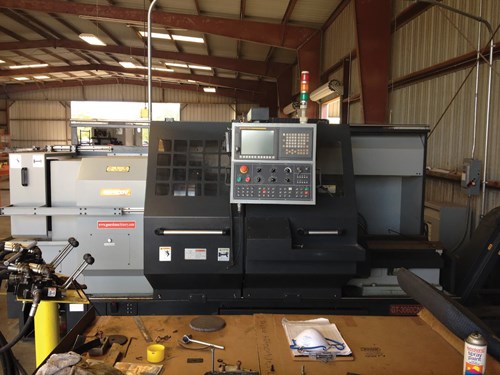
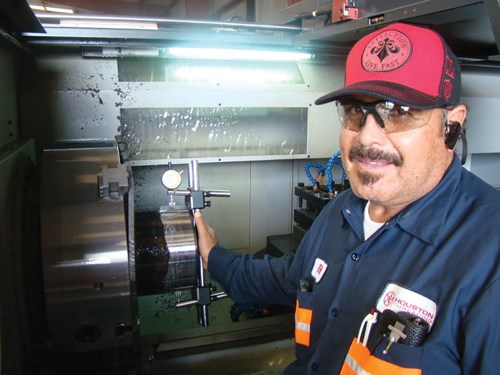
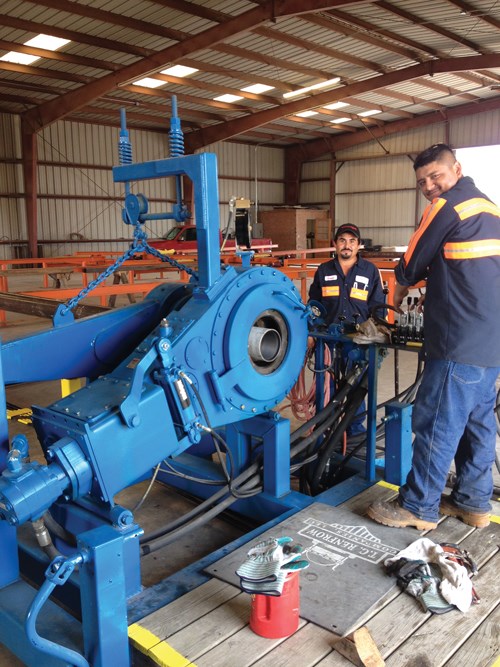
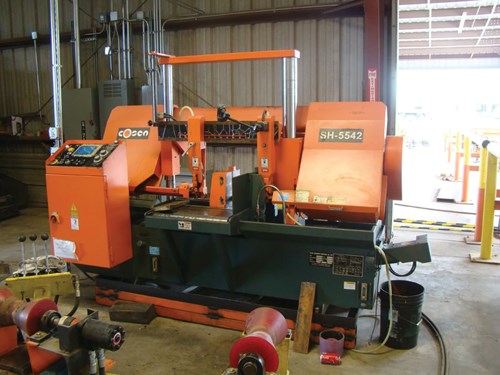







.jpg;maxWidth=300;quality=90)





